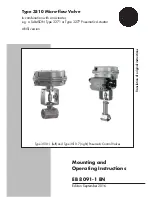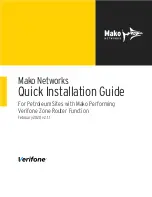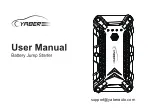
4 WIRING DIAGRAM
ROOMLINK DRIVER
FLASH RECEIVE
FLOOD EMITTER
SENSOR
4
SENSOR
3
SENSOR
2
SENSOR
1
See WM22 Sensor package for
wiring details of Sensor
PLUG TOP
POWER SUPPLY
5 INSTALLATION GUIDANCE
POWER
OUT
IN
SUPPL
Y
D
A
TA
SCREEN
SUPPL
Y
D
A
TA
SCREEN
Everything connects to the ROOMLINK DRIVER. Up to four FLOOD EMITTERS (SL-FE) and WINDOW EMITTERS (SL-
WE) may be plugged into the two 3.5mm jack sockets using the Y-Adapters provided. The plug-top power supply
plugs into the D.C. jack, and the ROOMLINK SENSOR (WM-22) connectors plug into the socket strip.
WINDOW EMITTER (SL-WE)
FLOOD EMITTER (SL-FE)
This is a version of the standard window emitter which can be stuck directly on
to the infra-red 'window" of the hi-fi system, video or satellite receiver used.
Remove protective backing, and press lightly into place. Once successful operation
has been proven, press firmly into place.
This is an emitter that can be stuck or screwed (screws not supplied) directly to
the cabinet housing the source equipment. It permits the ‘repeated’ IR command
to be flooded to all the source components.
The key to a good installation is positioning. As can be seen from the application examples, the ROOMLINK
DRIVER can be placed out of sight behind the equipment, but the FLOOD EMITTERS must be placed in front
of the equipment. The best solution is to use the WINDOW EMITTER (see WINDOW EMITTER instructions) as
this attaches directly to the infra-red window of the system, but when systems are comprised of individually
remote controlled separate components, a FLOOD EMITTER can be used. The closer these are positioned
to the equipment the poorer the receiving angle becomes. It is therefore recommended that initially the FLOOD
EMITTER is positioned some distance away. After correct operation of the FLOOD EMITTER has been
established, try moving it closer to the equipment.
Double check that everything still works properly prior to securing the WINDOW EMITTERS by removing the
protective backing to the underside of the adhesive strip and pressing firmly in place. The FLOOD EMITTER
can also be secured using screws through the holes provided.
An even better arrangement is to conceal the equipment in a cupboard and secure the FLOOD EMITTER face
down to the underside of the top of the cupboard, so that it is completely out of sight.
The main consideration for the ROOMLINK SENSOR (WM22), apart from locating it in line of sight of the remote
control handset, is to AVOID DIRECT INTENSE LIGHT. Spot lamps should be directed away from the Sensor
and close proximity to fluorescent lights should be avoided. Sunlight also encompasses the infra-red spectrum,
so care should be taken to place the Sensor out of the path of direct bright sunlight.
The ROOMLINK SENSOR can be mounted in essentially one of two ways. It can be fitted flush on to a wall
using an M.K. 866 ZIC pattress box (U.K. only) or by using 35mm deep clip-in stud partition wall box (particularly
useful for ceiling mounting as well as wall mounting).
WINDOW EMITTERS
‘Y’ ADAPTORS






















